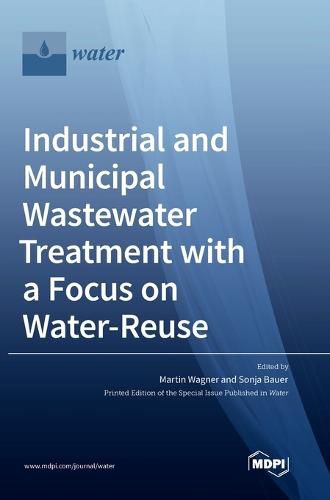Readings Newsletter
Become a Readings Member to make your shopping experience even easier.
Sign in or sign up for free!
You’re not far away from qualifying for FREE standard shipping within Australia
You’ve qualified for FREE standard shipping within Australia
The cart is loading…






This title is printed to order. This book may have been self-published. If so, we cannot guarantee the quality of the content. In the main most books will have gone through the editing process however some may not. We therefore suggest that you be aware of this before ordering this book. If in doubt check either the author or publisher’s details as we are unable to accept any returns unless they are faulty. Please contact us if you have any questions.
Population growth and climate change are leading to global water scarcity. Water shortages are thus hindering rural, urban and industrial development. These days, approximately half of the world's population is affected temporarily by water scarcity. To enable a secure water supply, alternative water sources must be generated to tackle the challenge of water scarcity. An important alternative resource is the reuse of treated wastewater. Water reuse processes are rarely considered and implemented. In contrast to the storage and use of rainwater, treated wastewater is a valuable resource, as it is available daily. Certain wastewater treatment processes are required to produce the new resource "reused water". The treatment processes depend on the quality of the wastewater since industrial and municipal wastewater flows are characterized by different concentrations. Moreover, water reuse methods must be developed in order to use the treated wastewater as efficiently as possible. Ideally, the reused water can be provided according to the "fit for purpose" principle and applied directly in areas such as irrigation, street cleaning, toilet flushing or make-up water for cooling systems.
The Special Issue brings together new wastewater treatment technologies and water reuse concepts to tackle the challenges of climate change with the aim of bringing the resource "reused water" according to the "fit for purpose" principle to the user. This issue aims to draw on global experiences, approaches and solutions.
$9.00 standard shipping within Australia
FREE standard shipping within Australia for orders over $100.00
Express & International shipping calculated at checkout
This title is printed to order. This book may have been self-published. If so, we cannot guarantee the quality of the content. In the main most books will have gone through the editing process however some may not. We therefore suggest that you be aware of this before ordering this book. If in doubt check either the author or publisher’s details as we are unable to accept any returns unless they are faulty. Please contact us if you have any questions.
Population growth and climate change are leading to global water scarcity. Water shortages are thus hindering rural, urban and industrial development. These days, approximately half of the world's population is affected temporarily by water scarcity. To enable a secure water supply, alternative water sources must be generated to tackle the challenge of water scarcity. An important alternative resource is the reuse of treated wastewater. Water reuse processes are rarely considered and implemented. In contrast to the storage and use of rainwater, treated wastewater is a valuable resource, as it is available daily. Certain wastewater treatment processes are required to produce the new resource "reused water". The treatment processes depend on the quality of the wastewater since industrial and municipal wastewater flows are characterized by different concentrations. Moreover, water reuse methods must be developed in order to use the treated wastewater as efficiently as possible. Ideally, the reused water can be provided according to the "fit for purpose" principle and applied directly in areas such as irrigation, street cleaning, toilet flushing or make-up water for cooling systems.
The Special Issue brings together new wastewater treatment technologies and water reuse concepts to tackle the challenges of climate change with the aim of bringing the resource "reused water" according to the "fit for purpose" principle to the user. This issue aims to draw on global experiences, approaches and solutions.